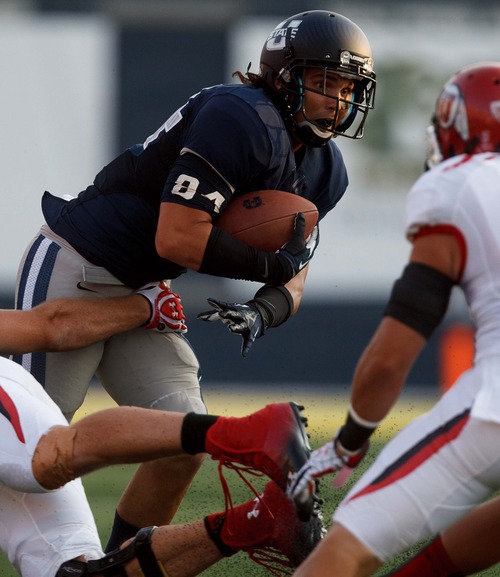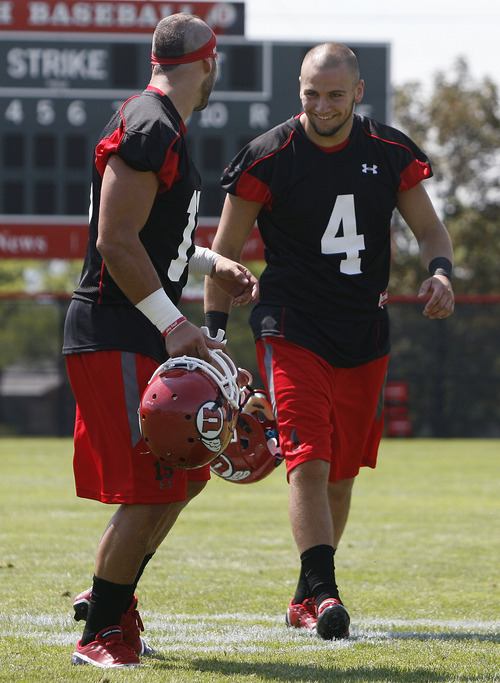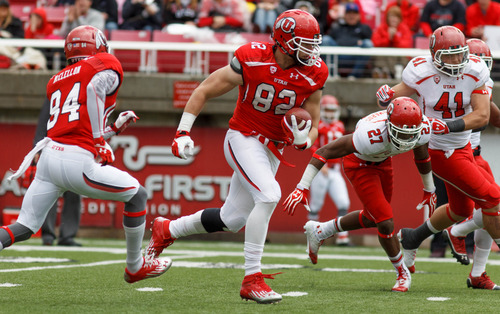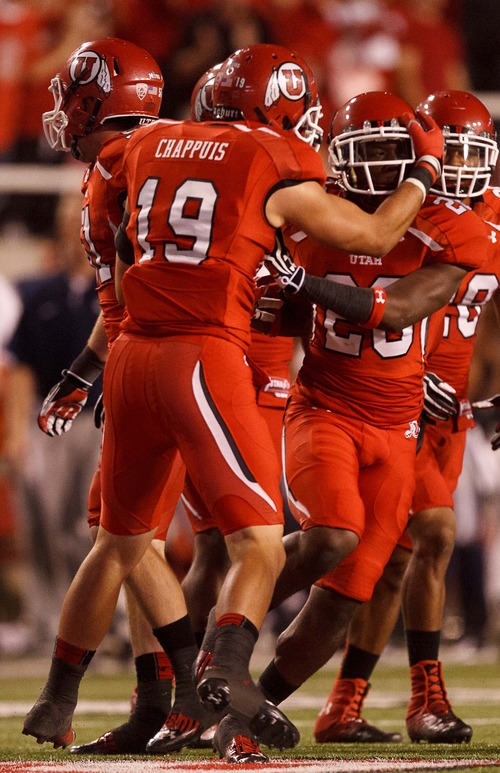This is an archived article that was published on sltrib.com in 2013, and information in the article may be outdated. It is provided only for personal research purposes and may not be reprinted.
Utah football coach Kyle Whittingham is fond of calling Utah's offseason conditioning program one of the most crucial times for player development, as his athletes pack on muscle and work on individual skills.
The idea is to get bigger, faster and stronger so preseason camp is focused more on football than getting into shape.
But here is the catch: No matter how important football coaches such as Whittingham believe summer workouts are, they are still considered voluntary and coaches still can't be present for the sessions.
Heck, they aren't even supposed to comment on the sessions, lest the NCAA interpret their comments as meddling or possibly putting pressure on players to participate.
Some, though, believe it is time to change the strict rules and call it like it is. The idea of voluntary workouts is a thing of a past. Players, coaches and probably fans know if athletes want to keep pace, they have to stay in the race and match their teammates stride for stride and rep for rep.
Several coaches have suggested the idea that football coaches should be allowed to have minicamps or individual sessions with players in the summer, even if it means eliminating or reducing the 15 practices allowed in spring ball.
Many teams such as Utah suffered so many injuries during the spring that the value of the sessions was lessened. They would rather have their hands on the players in the summer.
Arizona coach Rich Rodriguez said the opportunity to work with players in the summer would be particularly helpful for incoming freshmen to help them get up to speed.
"If we had a couple hours a week with them with no pads, just teaching techniques and showing them around a little bit, but we can't do that," he said. "A couple weeks in June or late July would be pretty beneficial."
Basketball has adopted a close format, allowing coaches to work with players on the court two hours a week in summer months.
Utah basketball coach Larry Krystkowiak views the opportunities as crucial times for him to help his players improve.
"It's a really good chance to get them in, see how they are doing and work on some individual things," he said.
Whittingham can only long for such opportunities.
He would welcome the chance to work with his players in such a fashion, he said, although he, like other coaches, recognized players need their own time too.
Under NCAA rules, player workouts can be overseen by the team strength coaches and until any changes are made, Whittingham will continue to rely on Doug Elisaia, who has been with the program since 2005, to get his team in shape.
"We feel we have one of the best strength staffs in the country here at Utah and they do a great job overseeing the voluntary summer workouts," he said. "However, were the NCAA to allow our coaches to observe these workouts or hold abbreviated practices, we would welcome the opportunity as long as it did not extend the allowable hours limit already in place."
Others, such as Stanford coach David Shaw, are more adamant summer should remain a player's domain.
"I do believe you wear them out mentally and wear them out emotionally and that is the last thing you want when in November when you are really pushing it down and you have been meeting with them on and off since spring," he said. "In my opinion, it's too much."
So, what are the players up to exactly? Quade Chappuis, a senior safety, said the Utes are hitting it hard in the weight room, where they can be supervised by the strength coaches, and are working on their cardio, with long runs in the morning.
They are also running their own 7-on-7 sessions, with tight end Jake Murphy leading the offense and Trevor Reilly and Brian Blechen leading the defense.
Chappuis, who said the workouts are going well, wasn't crazy about the idea of coaches having access in the summer.
"We're with them most of the year, and it's nice to have a break," he said. "It's good to just be with your friends and it's more laid-back and it forces people to be leaders."
Utah athletic director Chris Hill echoed Chappuis' thoughts.
"I think coaches are around them enough," he said. "It's probably good for the players to get some time away."
The comical twist is Hill is the one forking out more than $32 million for a new football facility that features large windows that will give coaches a bird's-eye view of the practice fields from their offices.
No word on how much Hill has spent on blinders that will cover the awesome view in the summer if the players are ever out on the fields. —
Utah football key dates
July 26 • Pac-12 Media Day
Aug. 4 • Players report to camp
Aug. 10 • Two-a-days begin
Aug. 13 • First scrimmage
Aug. 24 • Camp ends
Aug. 29 • Season opener vs. Utah State









